Germany's conservatives win power amid far-right gains
The party led by Friedrich Merz won the country's national election; the primary voter issues were the economy and immigration

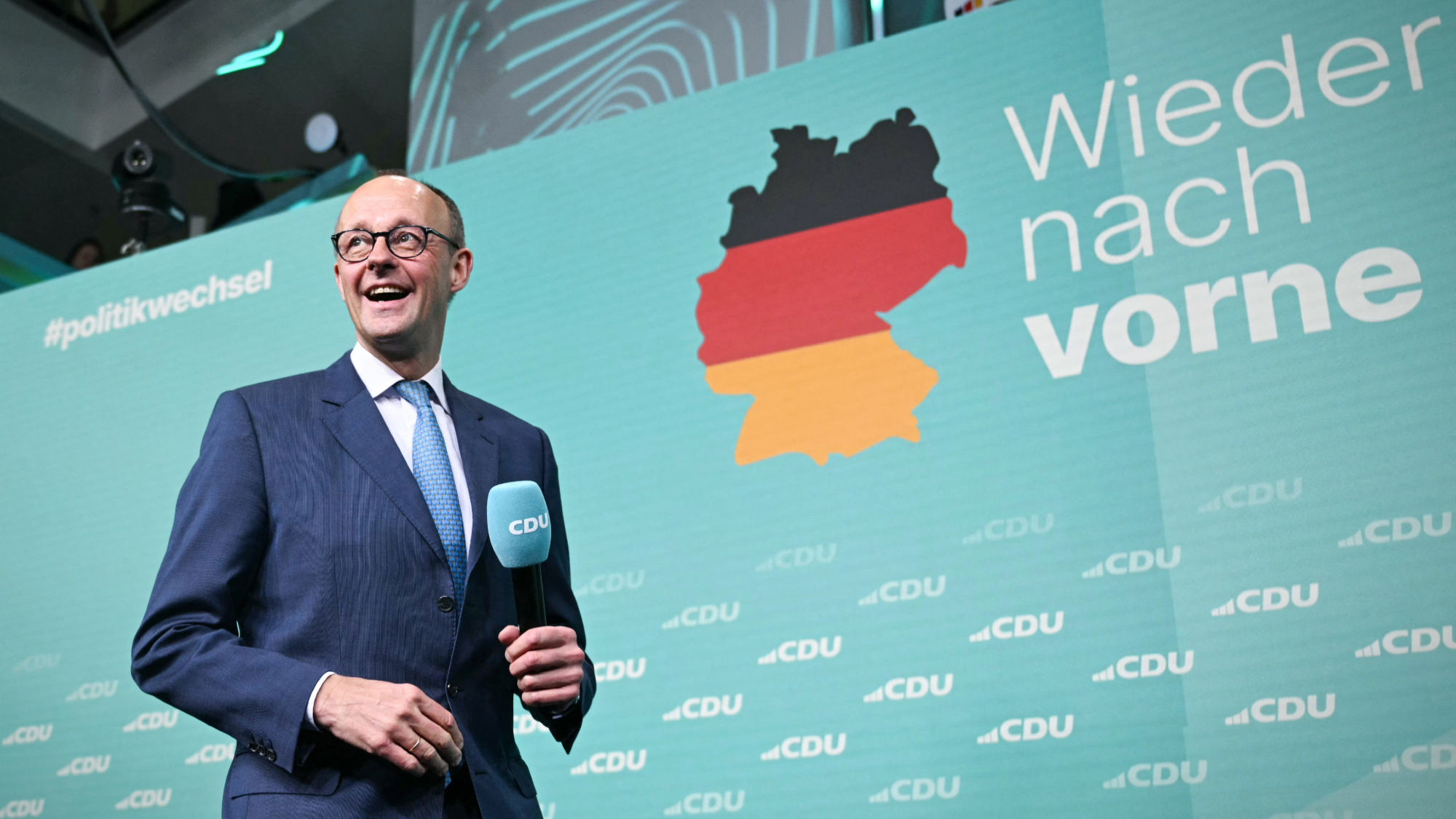
What happened
Germany's center-right Christian Democrats/Christian Social Union bloc won a 28.5% plurality in Sunday's national election, making CDU leader Friedrich Merz the presumptive next chancellor. The election was held seven months early due to the collapse of Chancellor Olaf Scholz's three-party coalition in November. Scholz's Social Democrats earned just 16.4% of the vote, while the hard-right Alternative for Germany (AfD) party jumped to second place with 20.8%, nearly double its previous high.
Who said what
The CDU's "lackluster victory" capped a campaign marked by "widespread discontent and not much enthusiasm for any of the candidates," The Associated Press said. The dominant themes were "worries about the yearslong stagnation of Europe's biggest economy and pressure to curb migration." Voter turnout was 83%, the highest since East and West German reunified in 1990.
Merz said his first priority was to "create a functioning government in Germany as quickly as possible." Scholz took responsibility for the Social Democrats' "bitter election result" and said he would not hold a ministerial role in a grand coalition government with the CDU, considered the most likely outcome of the election.
The Week
Escape your echo chamber. Get the facts behind the news, plus analysis from multiple perspectives.

Sign up for The Week's Free Newsletters
From our morning news briefing to a weekly Good News Newsletter, get the best of The Week delivered directly to your inbox.
From our morning news briefing to a weekly Good News Newsletter, get the best of The Week delivered directly to your inbox.
President Donald Trump congratulated the "conservative party in Germany" for its victory, and in a "characteristically bizarre manner," Politico said, he also "claimed the conservative victory was part of his own success, somehow." Vice President J.D. Vance and top ally Elon Musk had thrown their support behind the AfD. Merz criticized that "intervention from Washington" and said his "absolute priority" was to "strengthen Europe as quickly as possible, so that we achieve independence from the U.S." That's something "I never thought I would have to say," he added, "but after Donald Trump's statements" in recent weeks it is "clear that the Americans, at least this part of the Americans, this administration, are largely indifferent to the fate of Europe."
What next?
Merz, 69, reiterated that the AfD will not be part of his government, retaining the "firewall" between Germany's political mainstream and a far-right party that "routinely flirts with Nazi slogans and whose members have diminished the Holocaust," The New York Times said. AfD leader Alice Weidel said if Merz did not include her party, his government would not last, he would be an "interim chancellor" and in the next election, "we'll come first."
A free daily email with the biggest news stories of the day – and the best features from TheWeek.com
Peter has worked as a news and culture writer and editor at The Week since the site's launch in 2008. He covers politics, world affairs, religion and cultural currents. His journalism career began as a copy editor at a financial newswire and has included editorial positions at The New York Times Magazine, Facts on File, and Oregon State University.
-
 ‘Care fractures after birth’
‘Care fractures after birth’instant opinion Opinion, comment and editorials of the day
-
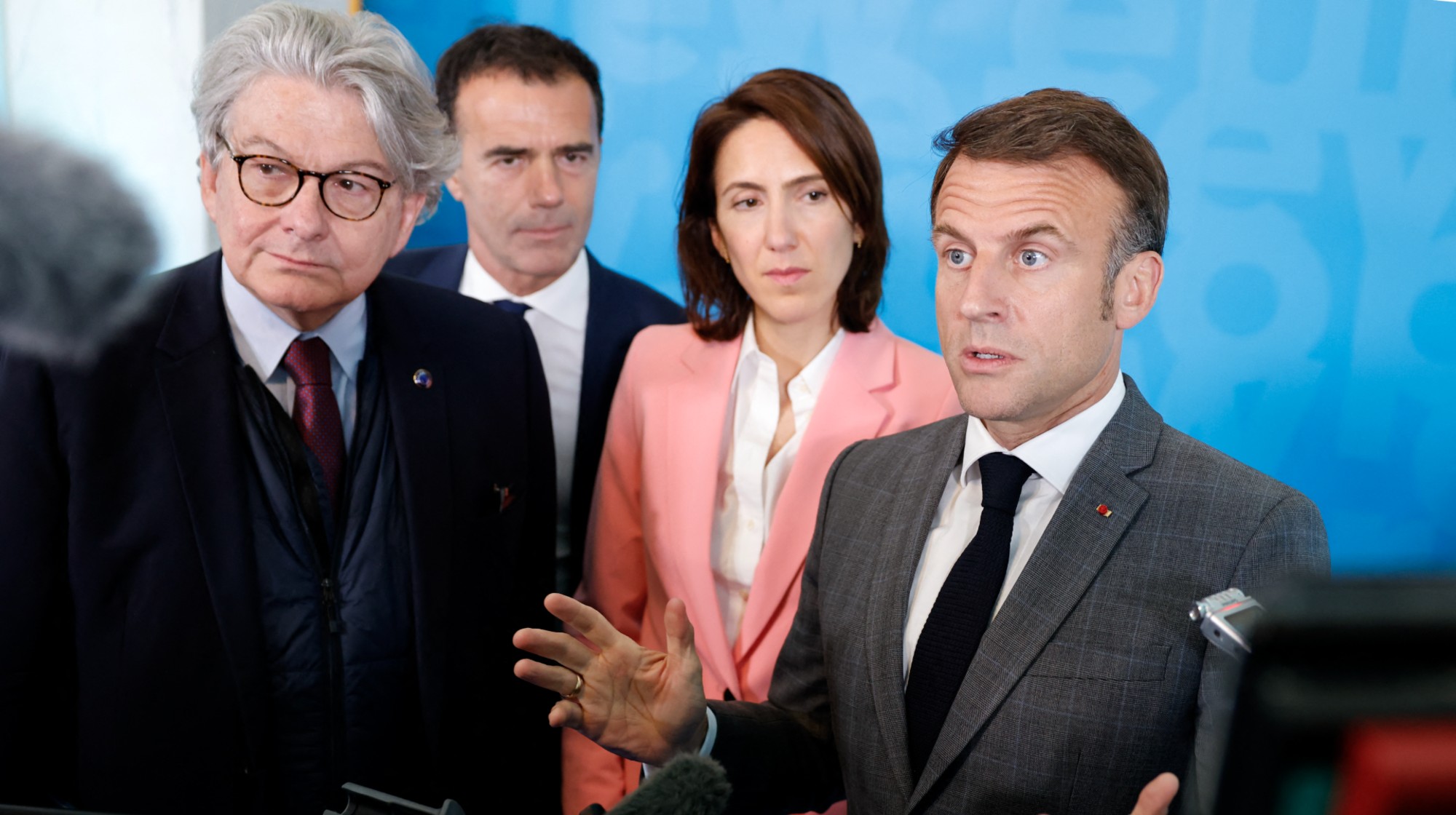 Shots fired in the US-EU war over digital censorship
Shots fired in the US-EU war over digital censorshipIN THE SPOTLIGHT The Trump administration risks opening a dangerous new front in the battle of real-world consequences for online action
-
 What will the US economy look like in 2026?
What will the US economy look like in 2026?Today’s Big Question Wall Street is bullish, but uncertain
-
 Shots fired in the US-EU war over digital censorship
Shots fired in the US-EU war over digital censorshipIN THE SPOTLIGHT The Trump administration risks opening a dangerous new front in the battle of real-world consequences for online action
-
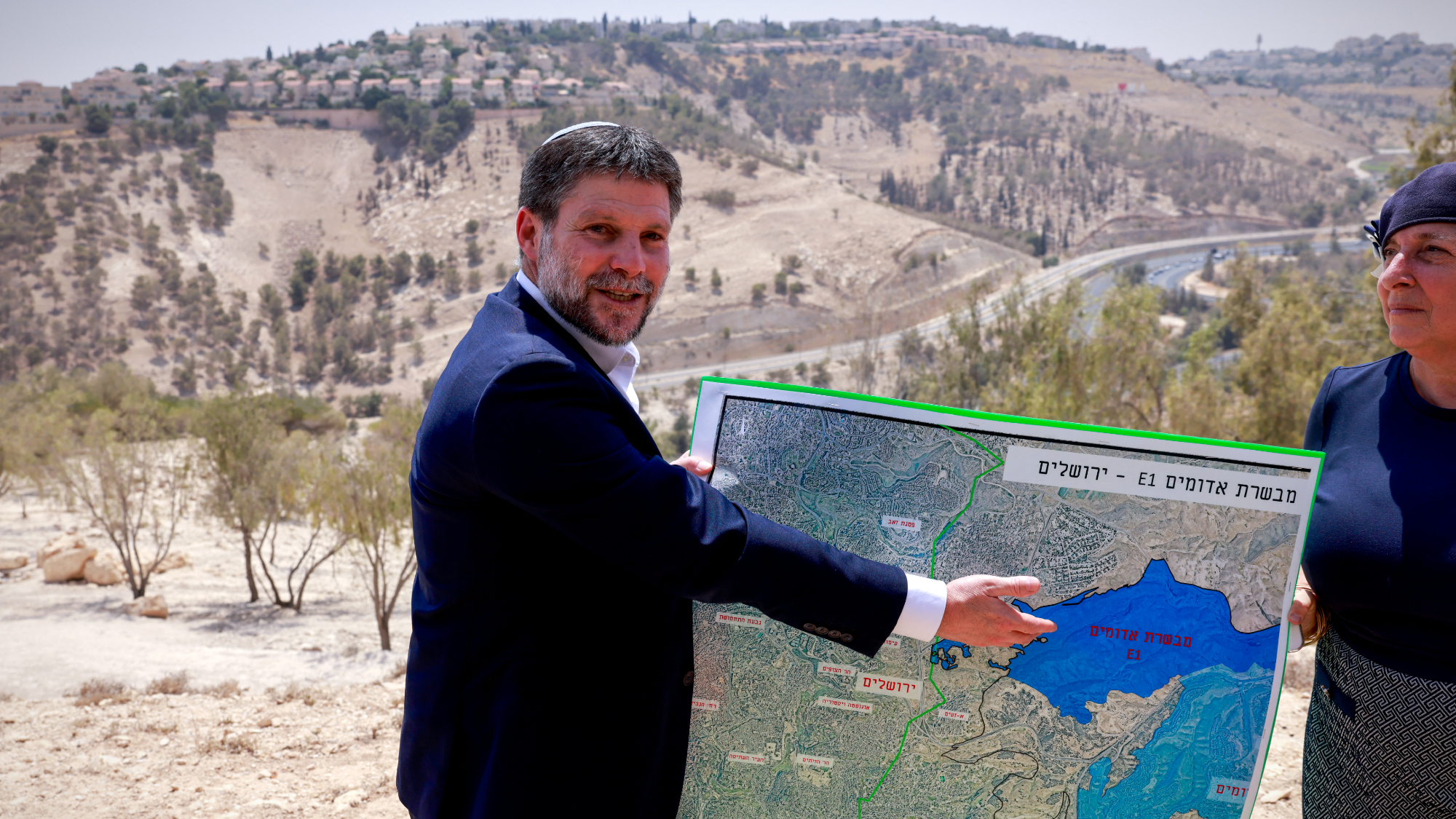 Israel approves new West Bank settlements
Israel approves new West Bank settlementsSpeed Read The ‘Israeli onslaught has all but vanquished a free Palestinian existence in the West Bank’
-
 US offers Ukraine NATO-like security pact, with caveats
US offers Ukraine NATO-like security pact, with caveatsSpeed Read The Trump administration has offered Ukraine security guarantees similar to those it would receive from NATO
-
 Hong Kong court convicts democracy advocate Lai
Hong Kong court convicts democracy advocate LaiSpeed Read Former Hong Kong media mogul Jimmy Lai was convicted in a landmark national security trial
-
 Australia weighs new gun laws after antisemitic attack
Australia weighs new gun laws after antisemitic attackSpeed Read A father and son opened fire on Jewish families at Sydney’s Bondi Beach, killing at least 15
-
 How Bulgaria’s government fell amid mass protests
How Bulgaria’s government fell amid mass protestsThe Explainer The country’s prime minister resigned as part of the fallout
-
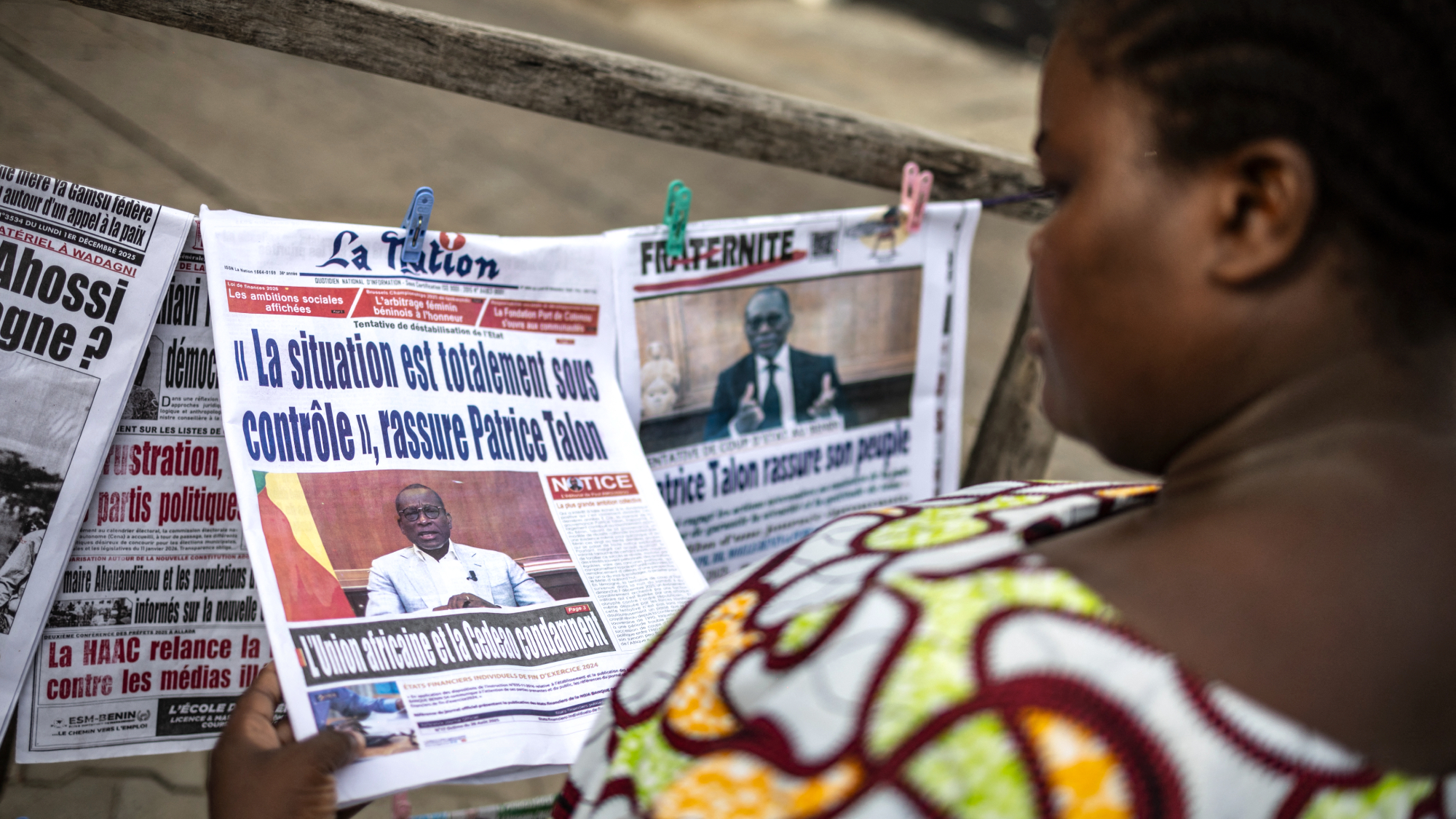 Benin thwarts coup attempt
Benin thwarts coup attemptSpeed Read President Patrice Talon condemned an attempted coup that was foiled by the West African country’s army
-
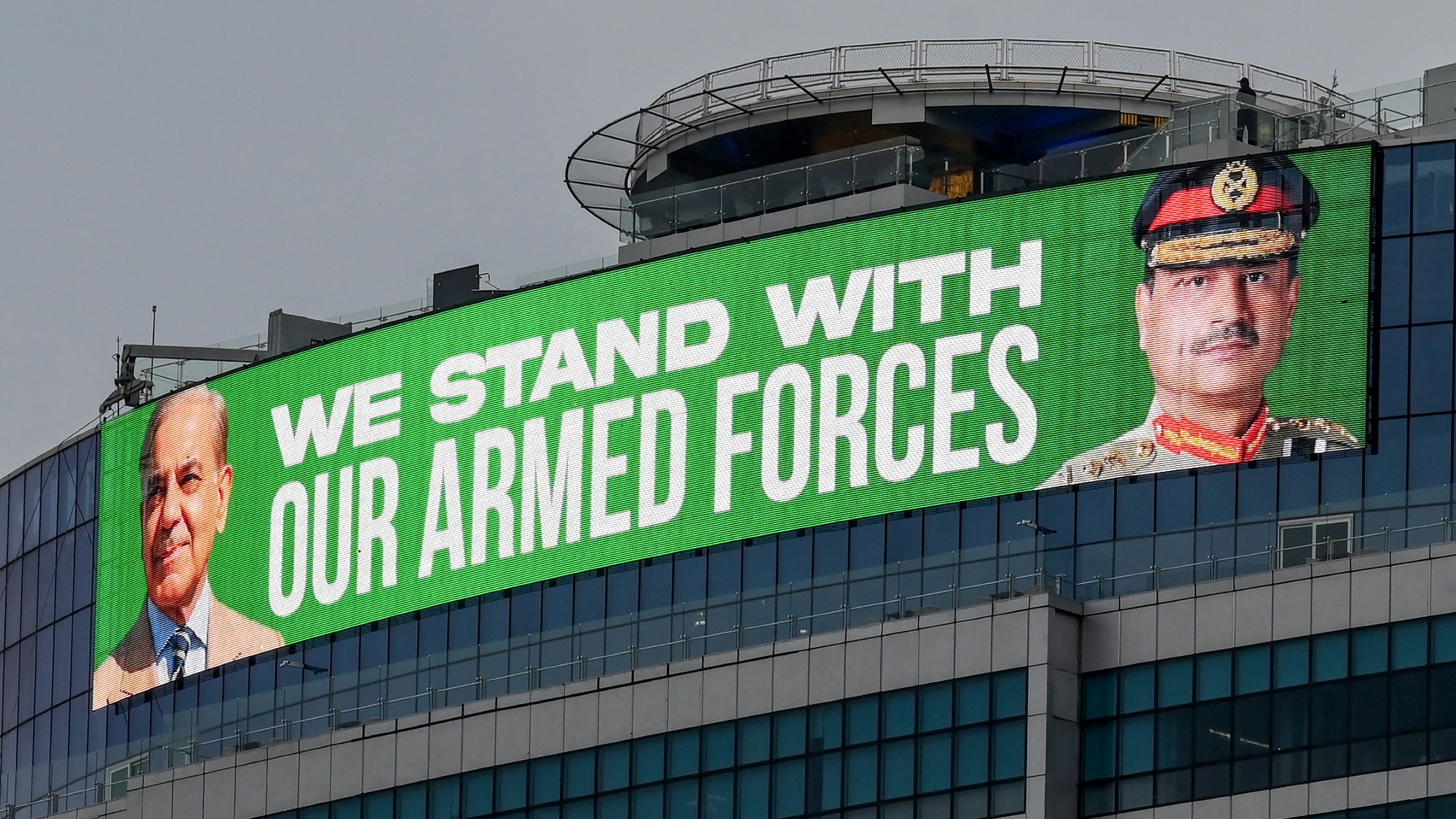 Pakistan: Trump’s ‘favourite field marshal’ takes charge
Pakistan: Trump’s ‘favourite field marshal’ takes chargeIn the Spotlight Asim Munir’s control over all three branches of Pakistan’s military gives him ‘sweeping powers’ – and almost unlimited freedom to use them
